What is Dental Implantation?
A dental implant is more than just a replacement; it is a lifeline to renewed confidence and functionality. Acting as an artificial substitute for the tooth root, dental implants in Hungary provide a sturdy foundation in the jawbone. These implants, made from biocompatible titanium, undergo osseointegration, ensuring a bond as strong as natural teeth.
Whether you have lost a single tooth or multiple, dental implants offer a permanent solution. For those who have had a missing tooth for a while, additional treatments like bone grafting might be necessary.
With dental implants in Budapest, rediscover the joy of natural actions like chewing, speaking, and smiling.
Dental implant Surgery Steps - Video
Delve into the world of dental implant procedures with our detailed video.

Benefits of Dental Implant
- replacing uncomfortable, temporary fixed overdenture
- helps keeping healthy teeth for longer as it is not necessary to shape them when putting on a crown on a dental implant
- biocompatible
- the price you pay for a dental implant is a lifetime investment
- not carcinogenic
Why Choose Medicover Dental in Hungary for Your Implants?
Dreaming of a stable, functional set of teeth? Say goodbye to unreliable dentures and hello to confidence with dental implants.
View dental implants as a lifelong investment, ensuring value for every penny.
Prioritizing your health, our implants are crafted from allergen-free materials.
Hungary stands out for its cost-effective dental treatments, especially when compared to Western Europe, the UK, or the US.
Our state-of-the-art clinic in Budapest is equipped to cater to international patients, offering treatments tailored to your travel plans.

Success Stories - Before and After Implantation
Case 1 – Full zirconia tooth replacement: Addressing a nearly toothless upper jaw and a bridge on tooth implants for the lower jaw. The result? Stunning zirconia bridges and crowns.

Case 2 – Lateral zirconia bridges: Replacing missing molars with zirconia bridges on 10 dental implants.

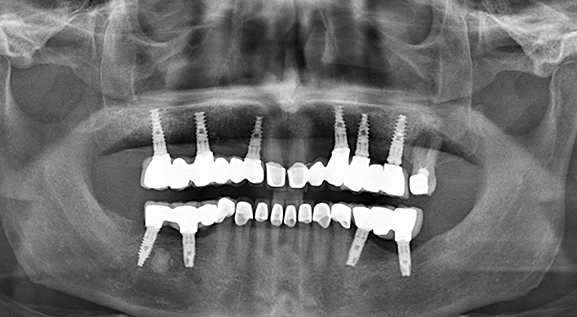
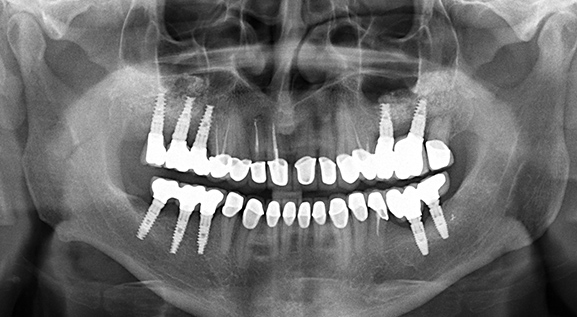
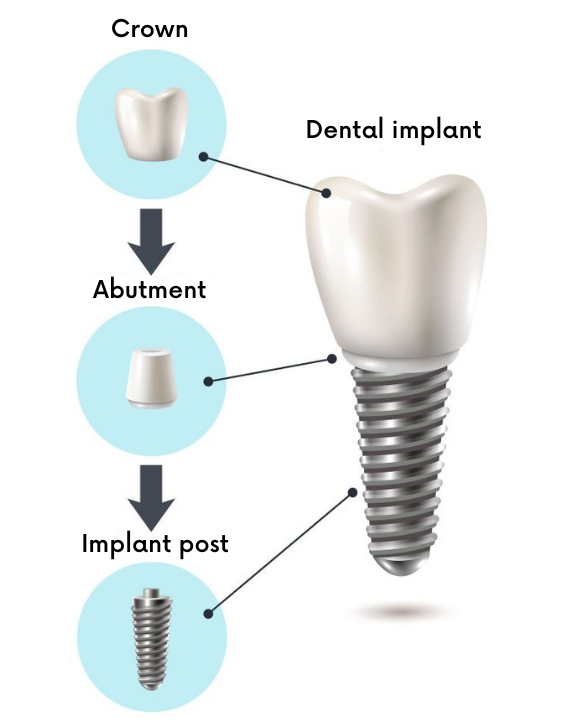
Health conditions of placing a dental implant
Age doesn’t matter when we are planning a dental implant surgery, though other conditions might be important, just like the quality and quantity of the bone in the jaw.
Other circumstances that influence negatively the dental implant surgery and its outcome:
- heavy smoking: sets back the healing process
- excessive alcohol consummation: sets back healing process of the gums
- periodontal disease: in some severe cases it might lead to bone loss
- patients with weak immune system: steroids, patients undergoing radiation treatment, auto-immune disease
- bruxism: tooth grinders might need a nightguard to help relieving pressure from the artificial roots and prevent chipping of crowns
- diabetes: it slows down the healing process, increases the risk of infections and other complications
Can I have dental implants if I’m grinding teeth?
Yes, it is absolutely possible, it is not even an unusual problem. Unconsciously, anyone can face it while sleeping. If you know about this disfunction of yours, please let your dentist know about it so they can suggest you mouthguard accordingly.
The importance of having enough bone mass
Special examinations are needed to be able to decide if the quality and the quantity of the bone is enough for the dental implant surgery.
Therefore, we make an X-ray and a CT scan and the dentist evaluates the density of the bone, also examines the dental hygiene state of the neighboring tissues, nerves, etc. If the bone is not enough, bone graft or sinus lift might be necessary before the dental implant surgery.
This process is completely safe if you have a good oral hygiene, good general health state and rested.
Risks of dental implantation
Risks of bleeding and effects of the anesthesia: we recommend you to not to drive after the surgery and not to eat for a few hours, neither sports or sauna are advised.
Risks of infection: keeping the dentist’s mouth hygiene recommendations is very important, it is not advised to use a mouthwash or to suck on the wound in the first few days in order to avoid infection.
How lasting is the dental implant?
If you are applying all the recommendations of your dentist, and pay attention to your oral health, it should last for a lifetime.
Why choose the Straumann implant?
A high-quality implant provides more predictable results and a longer lifespan.
A pioneer and new leader in implant dentistry, Straumann® has been developing and manufacturing implants since 1974. In cooperation with internationally renowned clinics, research institutes and universities, the company has already introduced many technological and technical innovations in implantology.
To date, more than 15 million Straumann implants have been placed in the world.
Extensive, reliable and safe treatment is possible with the Straumann dental implant system. This system includes:

- tissue and bone level (Tissue Level, Bone Level) implants, as well as mini implants.
- the SLActive® and SLA® surface technologies for predictable osseointegration.
Different implant surfaces
For the best bond between the bone and the artificial titanium root, the surface of the implants is made porous. Thus, during healing, the bone can integrate into the porous structure of the implant. These microscopic holes are not visible to the naked eye on the surface of the implant.
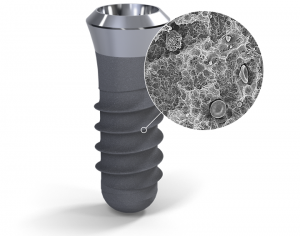
SLA® reference implant surface
The classic SLA® surface implant introduced in 1998 is based on the large grain sandblasting technique, which generates macro roughness on the titanium surface. The resulting nano-structure provides an ideal surface for the connection of cells and bone integration during healing.
Numerous clinical and preclinical studies have confirmed the long-term performance and reliability of implants, which is why it is one of the most commonly used implant types in dental implantology.
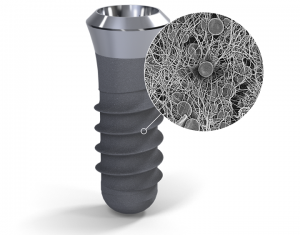
SLActive® high performance implant surface
The SLActive® surface improves the integration of the implant into the bone tissue, as well as the predictability of the treatment, speeding up the healing time.
Recent studies have shown the excellent clinical performance of SLActive® implants even in the most difficult treatment protocols and in patients with medical problems.
Bone integration
Innovations
Straumann’s technological innovations improve the results, reliability and comfort of your treatment:
The Roxolid® implant material opens up new therapeutic options that are less burdensome for the patient. Roxolid® is made of zirconium oxide and titanium metals. This is the most significant innovation in Straumann research and development in recent years. The material of the implant has an extremely high resistance, which also promotes optimal bone integration.
Zirconium oxide implants are an excellent alternative for patients who want a metal-free implant.
Why Nobel Biocare and AlphaBio Implants Stand Out in Hungary
- Over 20 years of unparalleled service.
- A lifetime guarantee backed by premium materials.
- Clinical research and tests vouch for their efficacy.
- Safety ensured with biocompatible titanium.
- Efficient procedures with an unbeatable price-quality ratio.
- While Nobel Biocare is a premium choice, AlphaBio promises quality at an affordable rate.
Process of dental implantation
Dental implant surgery is a very unique procedure, every case is different as it’s depending on a lot of different conditions. Here we try to explain a simple case as a basic information:
| Possible dental treatments prior to dental implant surgery (not always necessary) | Dental treatment | Healing period |
| tooth extraction (decayed, worn) | tooth extraction (decayed, worn) bone healing after tooth removal might request 3-4 week sometimes, in some other cases, implantation can be done immediately | |
| bone grafting | 4-6 months of healing period before tooth implant surgery | |
| sinus lift (only upper jaw) | a minimum of 8 months of healing before placing the dental implant | |
| Steps of dental implant surgery | Dental treatment | Healing period |
| placing the tooth implant | integration of the dental implant needs 4-6 months while the jawbone is ossifying around the artificial root | |
| dental impression | once the dentist exposes the dental implant, he takes an impression for final restoration | |
| abutment and crown fixing | 5 days needed for the final restoration to be completed (crown, bridge, full bridge, overdenture or All-on-4) |
1. First consultation and treatment plan
Our oral surgeon specialists are evaluating the oral health and dentition of the patient upon the panoramic X-ray. If the general health and the bone density seems to be all right, the dentists are preparing a personal treatment plan. Additional examinations, like blood test or CT scan might be necessary to make sure the dental implant will be properly fixed.
2. Dental implant surgery
The dental implant is placed in the jawbone in a completely pain-free way. After the surgery has been performed, the dentist is giving him/her the necessary recommendations and instructions to respect until it’s completely healed. Bone grafting might be necessary in certain cases.
3. Healing time
The tooth implant needs 3-6 months to heal under the gum, and therefore to integrate in the jawbone. Perfect oral hygiene and prescribed medication is highly important during this period.
4. Final restoration
Once the healing period is over, the final restoration can be fixed on the implant(s). It can be a single crown or a bridge for example.
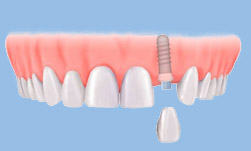
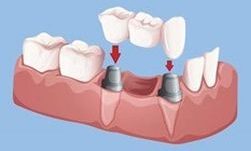
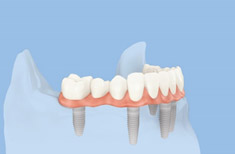
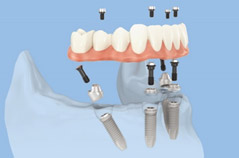
If you have no teeth in the lower jaw, and are not yet ready for multiple dental implant placements, a conventional lower denture can be replaced by a removable overdenture.
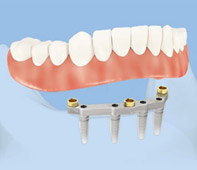
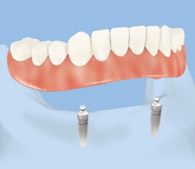
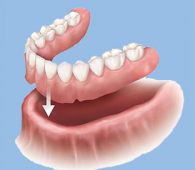
5. Check-up
Dental implant is an effective solution to replace a missing tooth but to keep its long-term success, it is highly important to maintain the instructions of the dentist. High level of oral hygiene can help keeping the good condition and the stability of the tooth implants.
The Dental Implantation Journey in Hungary
The journey, spanning up to a year, starts with a consultation, followed by implant placement, exposure, and final restoration. Regular check-ups are vital to maintain the implant’s health. For more details, contact us at +36 20 432 0945 or email us.
What to do after tooth implantation?
Once the dental implant surgery has been finished, pain and swelling can be expected in the facial area. This is not unusual as the regeneration concerns multiple tissues in the mouth. At Medicover Fogászat, we are prepared for this situation and giving you painkillers after the procedure to help you finding a solution to the pain in the first few days. You will also get some ice jelly and prescribed antibiotics for the same reason and also to help faster healing after the surgery.
Resolvable stiches are being used at our dental clinic, so no need of an appointment to remove them.
How long is the recovery after dental implantation?
Osseointegration is the healing and integration of the dental implant, this process is important to get the necessary stability of the implant in the jawbone. If the artificial tooth root is placed in the lower jaw, it might recommend less time to heal (2-4 months) than in the case of the upper one (3-6 months). This is only a general estimation, of course, personal health conditions are highly important in this matter.
When can we fully enjoy the benefits of our new dentition?
Once the tooth implantation has been finished, you don’t stay without tooth for the next 3-6 months. Therefore, you will get a temporary denture for the healing period. This is not as stable, functional and cannot bear as much pressure as the permanent tooth replacement, so we kindly suggest you to avoid consuming dry, hard food, such as apple or nuts.
By the time the integration of the implant has been completed, and the permanent crown, bridge or denture has been fixed, the new artificial teeth are taking the same role as your natural teeth.
About the importance of the regular visits after the dental implantation
It is highly recommended to visit your dentist yearly, even more important than when you have only natural teeth as this is still a severe intervention into your body.
Our highly qualified and expertised dentists at Medicover Fogászat are using the best quality and latest technology and materials to help you getting back your beautiful smile and functional dentition. However, some problems may arise by the time, this is the reason why they need to check on it regularly.
If you’re not taking these visits to serious, it might lead to undiscovered infections that can spread faster in the periodontal or bone area or other health problems, just like bone loss cannot be detected on time.







